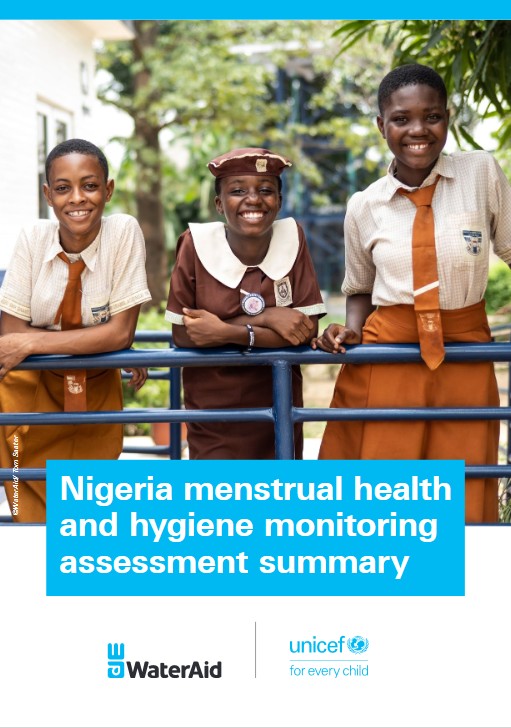Nigeria menstrual health and hygiene monitoring assessment summary
 |
position paper Oct 2024 ; 17 pages
Ed. UNICEF - New York WaterAid - London
Downloadable format: PdF
Downloadable from the publisher
Abstract:
This note provides a rapid assessment of the national landscape for existing monitoring priorities and systems for adolescent girls’ MHH. It is part of a four-country initiative led by WaterAid and UNICEF to support the roll out and uptake of the Priority List of Indicators for Girls’ Menstrual Health and Hygiene (Global MHH Monitoring Group, 2022) by assessing the country status, priorities, enablers, barriers and opportunities for monitoring MHH. It also aims to contribute towards improved MHH by assessing the feasibility and relevance of applying the priority indicators for national monitoring of MHH. These indicators can be used to monitor MHH across priority domains (materials, WASH, knowledge, discomfort/disorders, supportive social environment, menstrual health impacts, and policy) and are intended to enable comparability across countries and over time. It is expected that each country will apply the assessment findings for programming and policy decisions aligned to national priorities in a number of sectors, such as education, reproductive health and WASH.
Keyword: |
Country: |
Publishers/Broadcasters: |
|
UNICEF - New York - Usa |
WaterAid - London - United Kingdom |
If there is a broken link, we will be pleased to receive a message: communication@pseau.org